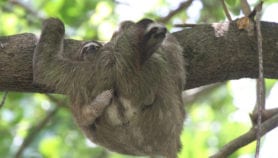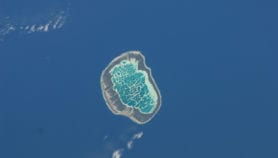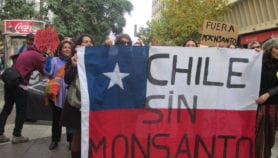By: Priya Shetty
Send to a friend
The details you provide on this page will not be used to send unsolicited email, and will not be sold to a 3rd party. See privacy policy.
The Samoan government and the University of California, Berkeley, have signed an agreement to share equally the profits from a potential anti-HIV drug — prostratin — derived from the bark of Samoa’s indigenous Mamala tree.
The drug, which stimulates expression of the HIV virus from reservoirs in the body so that anti-HIV drugs can clear it, is also being tested in clinical trials by the AIDS Research Alliance, who pledged in 2001 to give 20 per cent of any profits back to the country.
Jay Keasling, a chemical engineering professor at Berkeley, and his team will first need to isolate the genes of the Mamala tree that produce prostratin. The gene will then be inserted into bacteria to create ‘microbial factories’ that can churn out much larger quantities of the drug than could be produced naturally.
The researchers are working in collaboration with ethnobotanist Paul Alan Cox who first learned of prostatin’s anti-viral properties from local healers. The agreement, which allocates a 50 per cent share of commercial profits to the Samoan people is novel, says Cox, in that “it may be the first time that indigenous people have extended their national sovereignty over a gene sequence”.
Indigenous knowledge is increasingly being recognised as a valuable resource for commercial products such as pharmaceuticals. But the absence of a legally binding international treaty governing the intellectual property rights regarding such local knowledge means that it is open to exploitation (see Global legislation on indigenous knowledge).
Earlier this year, the discovery of naturally decaffeinated coffee plants originating in Ethiopia but grown in Brazil led to a fierce dispute over its genetic ownership (see Storm in a coffee cup). By contrast, the agreement signed in Samoa seems — on the surface at least — to be a win-win situation. Keasling believes the pact will “set a precedent for biodiversity conservation and genetic research” and for future commercial use of indigenous knowledge.
Not everyone is so positive, however. Rudolph Ryser, chair of the Centre for World Indigenous Studies, told SciDev.Net “the agreement is destined to falter”. According to Ryser, such agreements cannot be fairly made until mutually agreed international protocols are put in place. He adds that rather than signing agreements to share profits with local people, drug developers should instead aim to provide drugs for free.
More on Bioprospecting
News
Combining cassava species could lead to better crops
[SAO PAULO] Combining tissues from different cassava species may lead to a new method for improving t ...16/10/12
News
Biodiversity data gaps ‘need bridging’ to meet global targets
[HYDERABAD] Global biodiversit ...11/10/12
News
Meeting puts socioeconomic impact on biosafety agenda
[HYDERABAD] An international treaty meeting on biosafety has recommended to include the socioeconomic ...09/10/12
Feature
Guide and glossary to CBD
The Convention on Biological Diversity (CBD) has spawned a series of agreements and technical ...07/10/12








